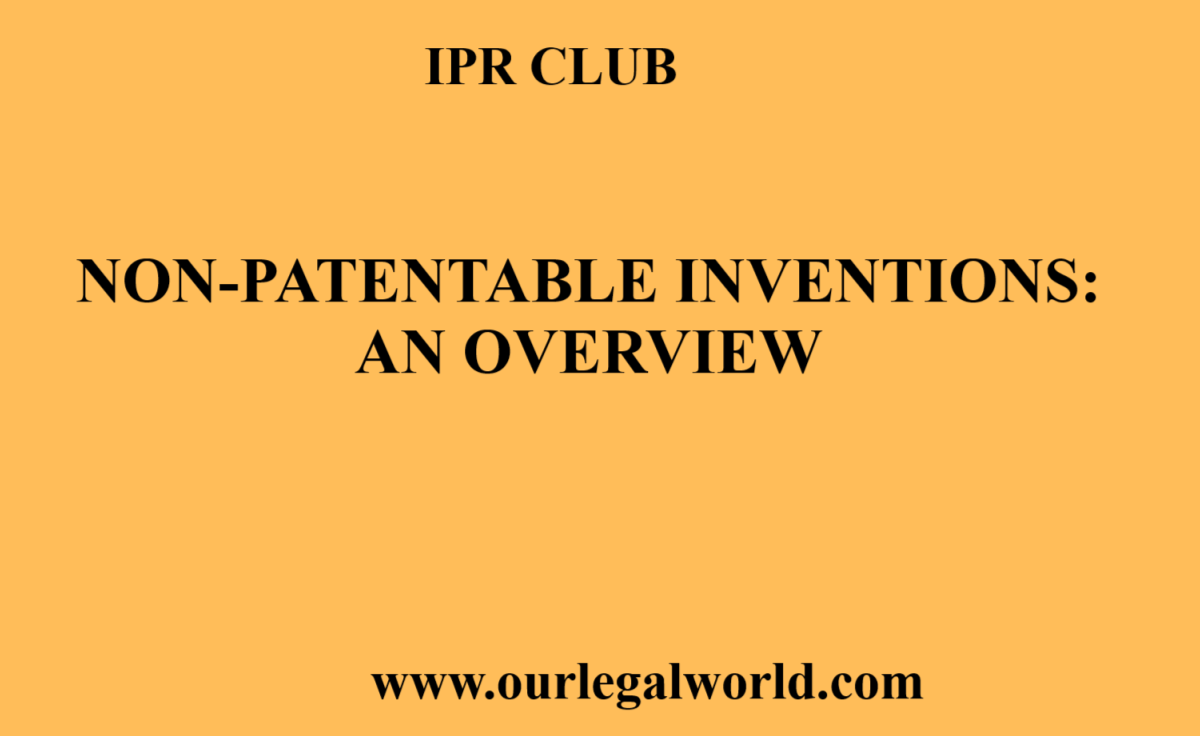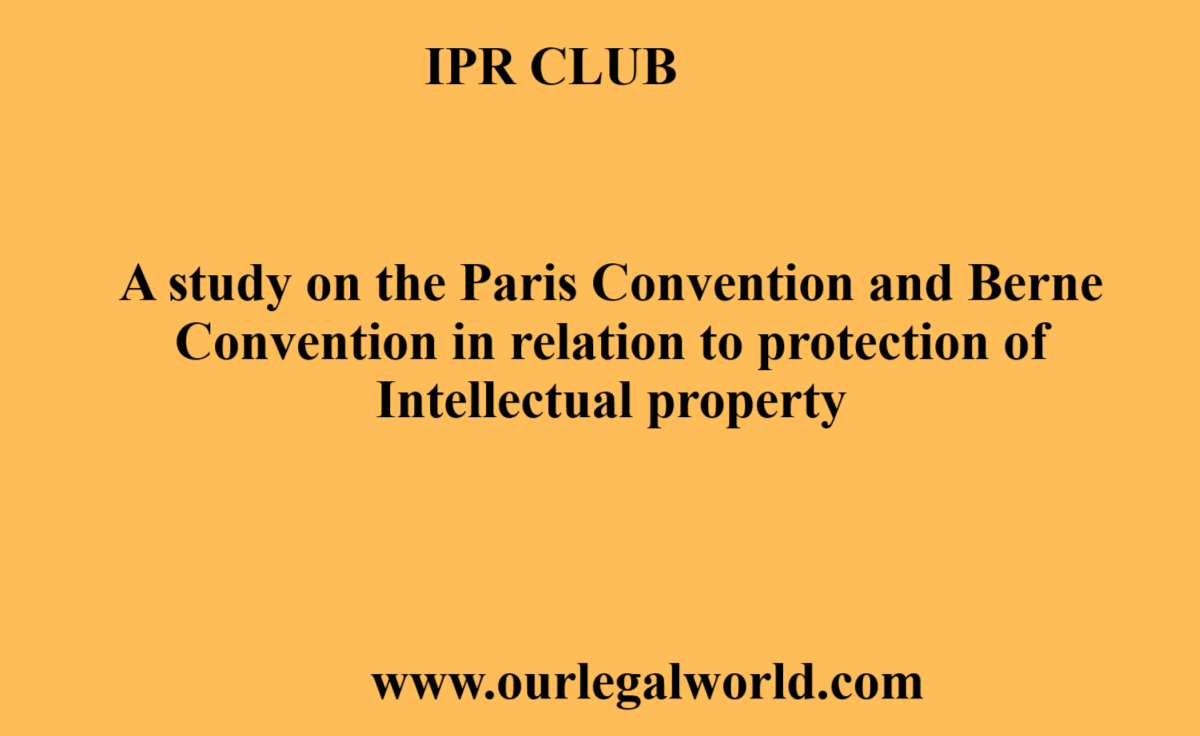PUCL- Case Analysis:- People’s Union for Civil Liberties vs. Union of India & Anr. (NOTA Case)
In Supreme Co urt of India Writ Petition (civil) No. 161 OF 2004 Citation (2013) 10 SCC 1 Petitioner People's Union for Civil Liberties (P.U.C.L) Respondent No 1: Union of India Respondent No 2: Election commission of India Date of Judgement 27 September, 2013 Bench P Sathasivam (CJ), Ranjana Prakash Desai, Ranjan Gogoi
Facts:
Petitioners (PUCL) filed a writ petition under Article 32 of the Constitution to challenge the constitutional validity of Rules 41(2) and (3) and 49-O of the Conduct of Election Rules, 1961. According to Petitioner these provisions violate the free and fair and is required to be maintained according to Section 128 of the Representation of the People Act, 1951 and Rules 49-M of the Conduct of Election Rules, 1961. This case deals with the right of voter which should be given secrecy while voting, which includes his right of not voting. Petitioner contended that the right of voter of not voting is a part of freedom of speech and expression under Article 19(1)(a) and is also considered under these rules but still his right of secrecy is not maintained under Rules 41(2) and (3) and 49-O. Petitioner prayed for order or direction to Election Commission to statutory provision for the protection of right of voter not to vote in the electronic voting machines and ballot machine. Respondent contended that Right to vote is neither a common law nor a constitutional right nor a fundamental right but only a statutory right and hence is not maintainable to writ jurisdiction under Article 32.
Issues:
1) Whether a writ can be issued in a case dealing with a statutory right of voting?
2) Whether the decision laid down in Kuldip Nayar regarding right of a voter needs to be revisited and whether the two judgements- Association for democratic reforms’ and PUCL stands overruled?
3) Whether the rules 41(2)(3) and 49 O of conduct election rules,1961 violate the fundamental rights of the voter?
Also Read: Ubi Jus Ibi Remedium- LEGAL MAXIM with explanation
Judgment
The Court held that for a democratic country to survive it is important that an individual shall be elected to run the nation. The Court said if NOTA option is provided to voter then this will force the political parties to work hardly and deserving and better people will be nominated. Free and fair election being the basic feature of Indian Constitution protects the identity of electors which indirectly maintains the secrecy. A difference between the person giving vote and the voter who chooses not to will be violation of Article 14. The Court distinguished between freedom of voting and right to vote. Right to vote is a statutory right but the decision of voter whether he will vote or not is a freedom of expression under Article 19 (1)(a). The Court held the right of citizen to give negative vote in election and held constitutional validity of Rules 41(2) and (3) and 49-O of the Conduct of Election. The Court directed the Election Commission to establish the option of NOTA (None of the Above) into electronic voting machine. This NOTA option is similar Abstain.
References
- https://indiankanoon.org/doc/31276692/\
- https://lawtimesjournal.in/peoples-union-for-civil-liberties-vs-union-of-india-anr-nota-case/
Edited by Our Legal World
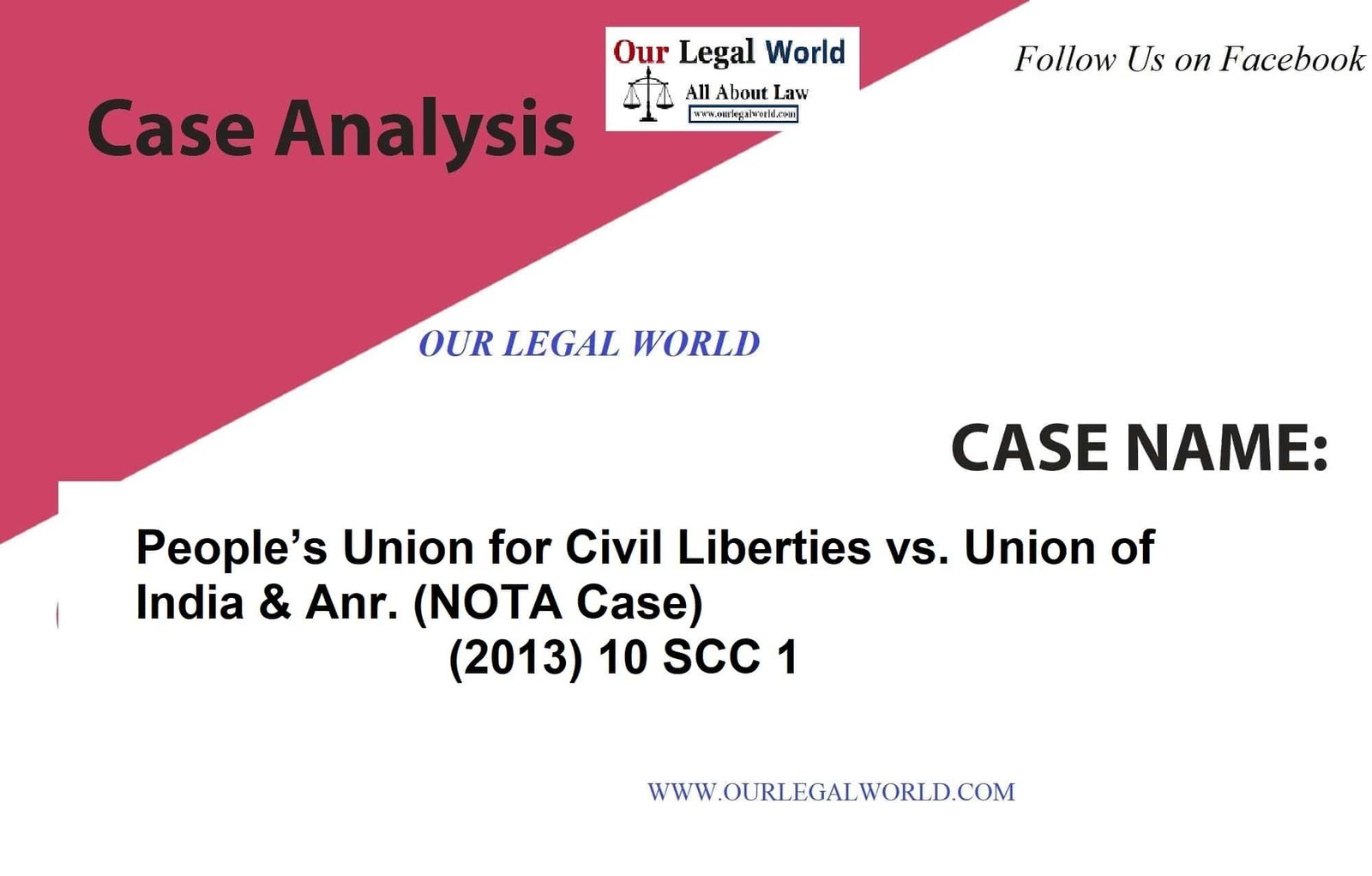


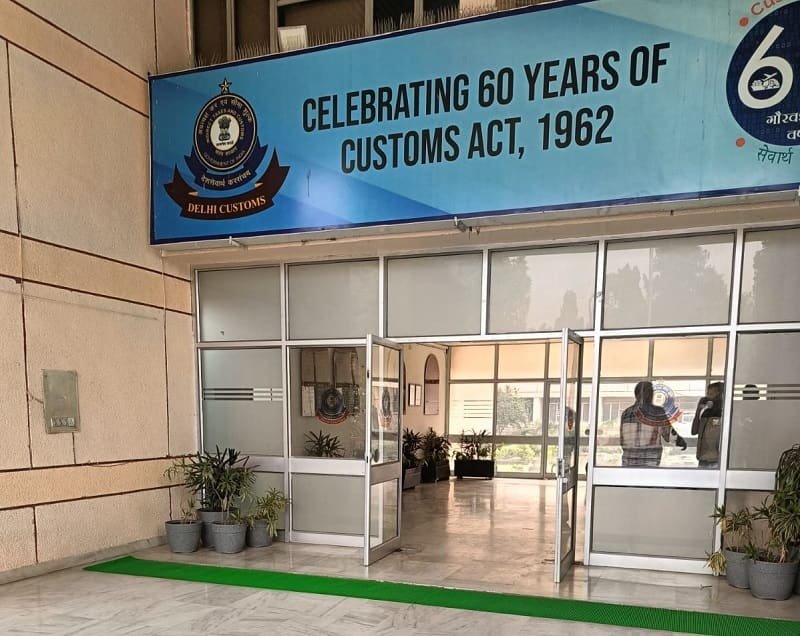
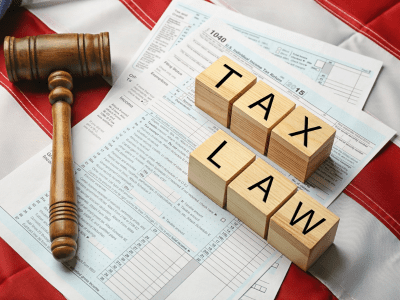
![Jamia Hamdard Mediation Competition 2025 at School of Law, HILSR [21st February 2025]](https://ourlegalworld.com/wp-content/uploads/2024/12/Screenshot-11-min-1.png)
